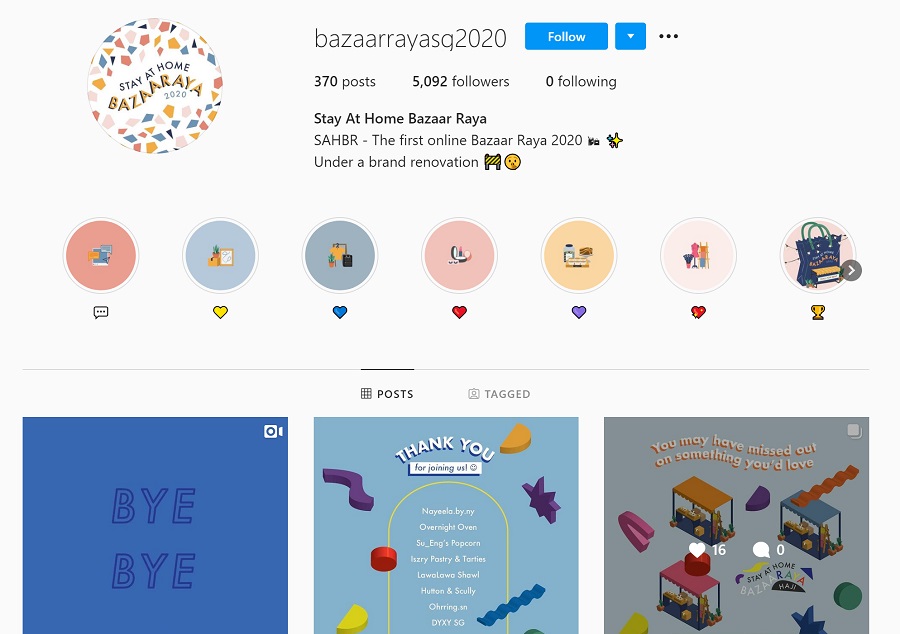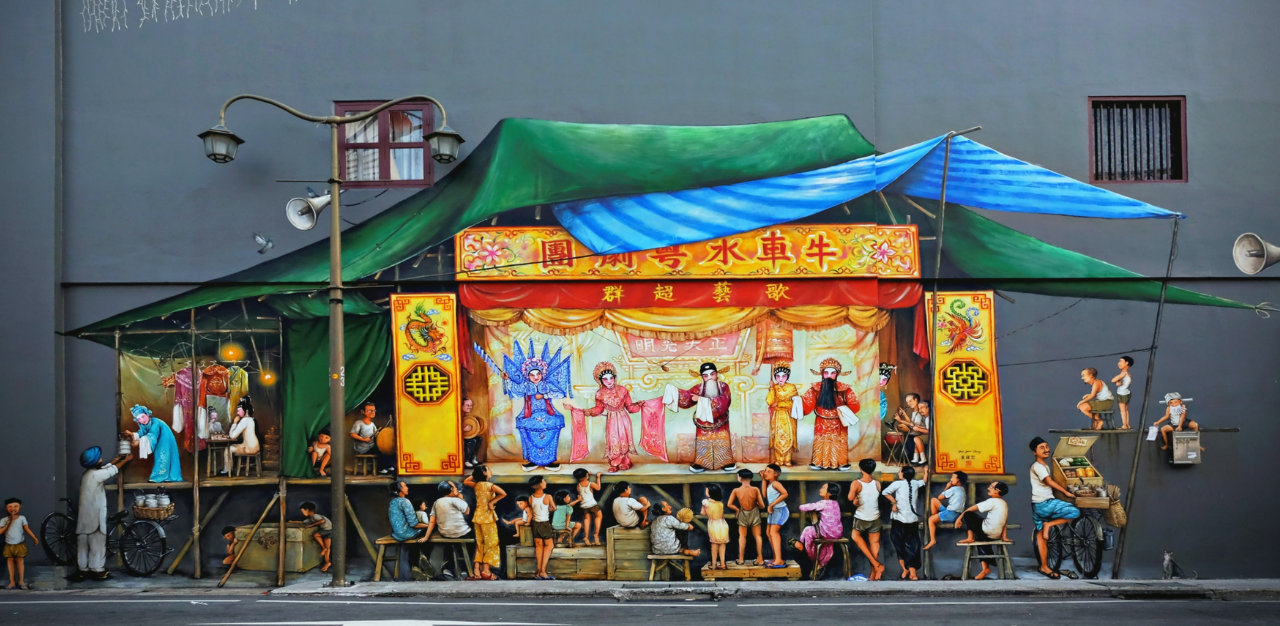A bustling Chinatown is a familiar sight during every Chinese New Year. Packed with vendors selling festive goods – and teeming with shoppers – the place is well-loved by many for its vibrant atmosphere.
While this year’s opening ceremony and light-up at Chinatown proceeded as per usual, the experience is vastly different due to the cancellation of its festive street bazaar and countdown party.
This year’s much muted celebrations saw a drop in footfall to Chinatown as a result. Some stall holders mentioned that they expect sales to fall by 30 to 50 per cent.
In order to keep the festive spirit alive and their businesses afloat, many vendors turned to the virtual world as an alternative resort.
Online store for Chinatown Complex’s hawkers to sell festive items
For the first time this year, 20 hawkers at Chinatown Complex are selling food and apparel for Chinese New Year through a new programme called ‘Double Happiness’. The initiative is organised by the Chinatown Complex Hawkers’ Association and supported by the Singapore Tourism Board.
With the aim of promoting hawker culture and Chinese New Year traditions, shoppers can place their orders on the website, and choose to either have them delivered or to collect at Chinatown Complex from now till 10 February.

Lacklustre sales for online bazaars
Similarly, local tech company, Delegate, recently concluded its Lunar New Year Virtual Bazaar on January 24. Spanning three days, the event attracted 3,000 visitors and 30 merchants.

The main highlight of the event was the bazaar’s immersive 3D environment, which allowed visitors to interact with brands, participate in lucky draw and experience their virtual photo booths.
Visitor numbers were lower than expected, partly due to the virtual bazaar being a new initiative.
Another online bazaar experiencing lacklustre sales is the Chinese New Year Virtual Fair organised by social enterprise, Promonade.sg. The fair commenced on December 28 last year and will run till February 26. The fair has 15 home-based businesses on board and has attracted more than 18,000 visitors thus far.

When interviewed by The New Paper, Promonade.sg’s marketing and sponsorship manager, Vincent Ong, mentioned that the company is underperforming in terms of sales, even though key opinion leaders and professional chefs who have tasted the products had given good reviews and feedback.
READ: Local festive treats for this Lunar New Year
Chinatown’s festive street bazaar isn’t the only event to fall victim to the ongoing pandemic. In March 2020, the Geylang Serai Hari Raya Bazaar was also cancelled, much to the disappointment of many.
Known for its wide variety of food, festive clothes and household decorations, the bazaar took to the virtual world last year as well.
Similar to Chinatown’s street vendors who are reliant on Chinese New Year sales, many business owners also participated in online Hari Raya bazaars to keep their businesses afloat.
Business owners turned to online Hari Raya bazaars in 2020
One of the bazaars was called the ‘GeylangBazaar.Online’, organised by Wisma Geylang Serai. The site had vendors selling food, apparel and cookware.

Others took to Instagram to sell their products and services. One example was the Stay At Home Bazaar Raya, which leveraged on the social media platform to showcase items such as cosmetics, food and jewellery.

According to The Straits Times, some business owners experienced an increase in sales when they changed to an online strategy.
Ms Zuliza Zulkifli, who runs a Malay cuisine stall at Jurong West, saw her food sold out on quite a few days when her business went online during the festive period. Having to fork out about $10,000 to $12,000 for a physical stall at the Hari Raya bazaar in the past, the store owner managed to save on the rental expense last year.
On 13 January 2021, it was announced that the Geylang Serai Hari Raya Bazaar will be cancelled for the second year in the row. The decision was made to protect the safety and well-being of residents.
Festive decorations will still be put up from 9 April to 23 May. However, the bazaar will move online, a situation similar to last year. The online bazaar will be organised by Wisma Geylang Serai and the Singapore Malay Chamber of Commerce and Industry. The duration will be from April 9 to May 13. More details will be announced in early April.
It is apparent that the cancellation of these two iconic bazaars have brought about serious repercussions for business owners. Retail store owners suffered vast losses due to the drop in footfall during the festive seasons, causing some businesses to fold as a result.
All hope is not lost as the pandemic saw Singaporeans staying united to fight the odds. Aside from government subsidies, business owners also helped one another to tide over the tough times.
The resilience of business owners saw them quickly adapting to changes, where they find new ways to convert their business models to go digital. Though digitization seems to be the way to go in order to survive, business owners ultimately hope for footfall traffic to return at their brick-and-mortar stores.
It is with hope that this situation will get alleviated soon so that our festive seasons can once again be enlivened with cheerfulness and vibrancy.
Join the conversations on THG’s Facebook and Instagram, and get the latest updates via Telegram.




























